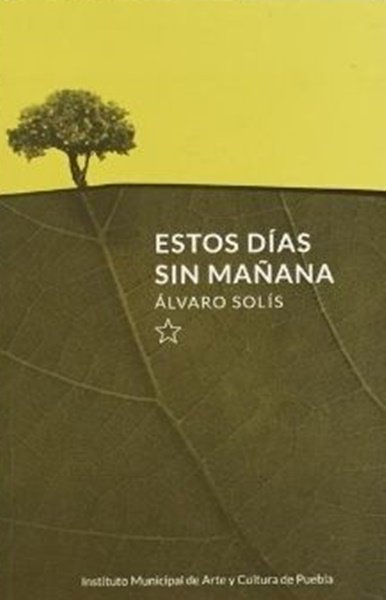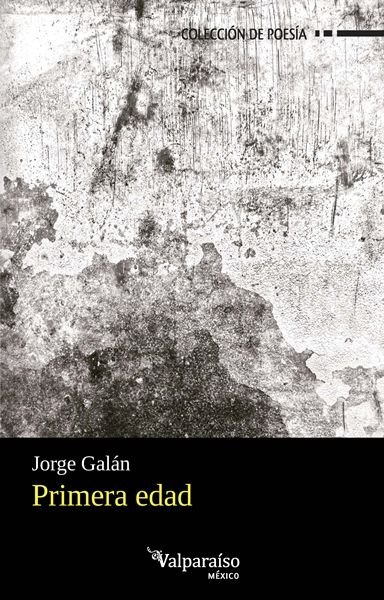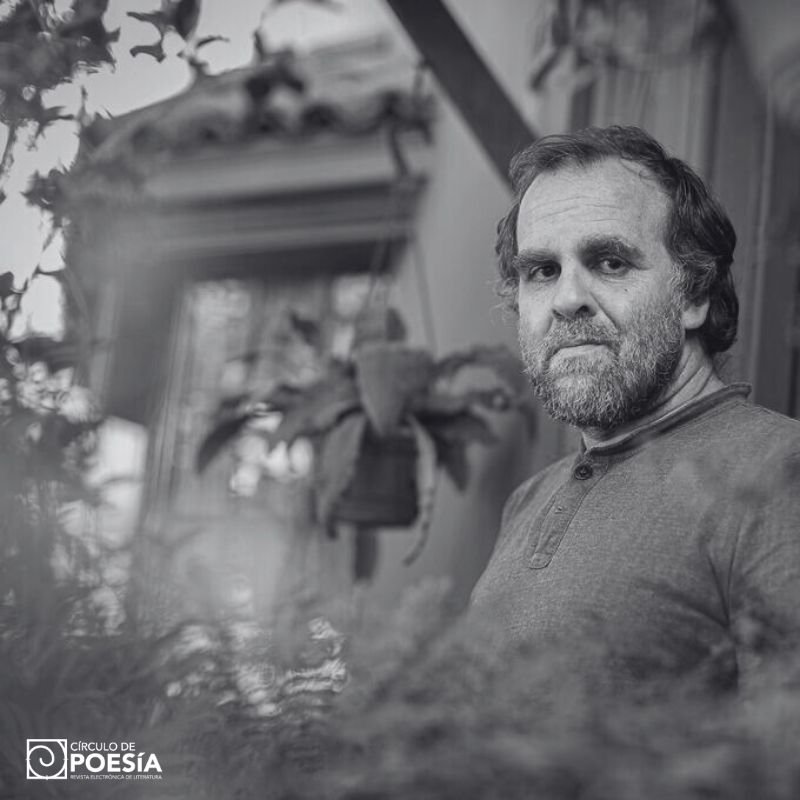Versopolis es un programa europeo de literatura que cuenta con el apoyo de Europa Creativa, el propósito que tiene es el de promover la poesía escrita por los jóvenes poetas europeos a través de una serie de festivales con distintas sedes en Europa como los que dirigen nuestros amigos y colaboradores Ales Steger y Todorce Tasevski, directores de los festivales Days of Poetry and Wine, en Eslovenia, y el Struga Poetry Evenings, en Macedonia, respectivamente. Ahora leemos a la poeta británica-trinitaria Vahni Capildeo (1973). Su obra escrudiña los conceptos de migración, refugiados, desplazamientos, expatriados. Entre sus libros destacan No Traveller Returns (2003), Personal Animal Figure (2005), Undraining Sea (2009), Utter (2013), Measures of Expatriation (2016), Venus as a Bear (2018), Skin Can Hold (2018) y Odyssey Calling (2020). En 2016 ganó el Forward Prize para mejor libro convirtiéndose en la tercer caribeña en ganarlo. Las traducciones son de Adalberto García López.
Ir a ninguna parte, llegar a alguna parte
¿Cómo fue que hasta que me interrogaron, hasta que me desplazaron para obtener una respuesta, que pensé en mí misma como alguien que tiene un país, o quizás alguien que ha dejado un país? La respuesta descansa periféricamente en la amenaza, en el interior; principalmente en lo deslenguado, en la palpitación de adentro. Era Trinidad. Es Trinidad. De la misma manera, hay algunos conferencistas que presumen no tener acento. Dirán: “¡Yo no tengo acento! ¡Tú tienes acento!” En esas voces sin acentos, los puntos de las brújulas comienzan a girar, los flagelos ocre y ultramar se identifican de forma distinta hacia ésta o la otra región. Es una versión móvil de ese lujo, esa solidez, esa no reflectividad que es asumir la patria. Son tan diferentes el expatriado al refugiado que lleva a su país en la espalda, o el migrante que lleva países en la espalda.
¿Cómo habría dicho hogar, antes de crear un hogar? ¿Antes de tener que aprender a recorrer su longitud, altitud, población, plataformas petroleras, torres de teléfonos móviles, banderas venerables, leyes de fuegos artificiales, el probable uso de armas de fuego, densidad y desaparición de los bosques, ibis escarlata, otras rayas escarlatas, en un lugar no visitado por oyentes, una transmisible, sustancial imagen de “Trinidad”?
El idioma es mi hogar. Está vivo aparte del habla. Está más allá de ser algo que cargue conmigo. Es ineluctable, abigarrado y musculoso. Un parpadeo y un obstáculo emanan de la idea de ello. El idioma es capaz de rodear la Tierra oceánica, como la serpiente del mundo en la leyenda nórdica. Es como si el idioma ejerciera una moldeada presión sobre los territorios que habitamos y en los que viajamos; golpeando, independienteente, tratando de separar nuestro conocimiento del mundo.
Sin embargo, el pensamiento no está limitado por el idioma. Por lo menos mi experiencia de pensar no pareciera tan limitada.
Un día perdí las palabras pared y piso. No parecía haber motivo para concebir una división. El zócalo se redujo repentinamente a una gentrificación nerviosa, un encubrimiento de algún tipo; nada en específico. La habitación era un contenedor enfocado hacia adentro. “Pared”, “piso”, incluso “techo”, “puerta”, “ventanas” comenzaron a fluir suavemente, como una camiseta de resaca roja sobre una caja torácica. La habitación creció un poco. La habitación se convirtió un segmento. Una línea anhelada hasta que se convirtió en una curva. Las imperfecciones de lo que se construyó o instaló: el marco de la ventana irregular o la teja pelada: sin poder para reclamar atención humana al “piso” o a la “pared” como tal. Los objetos estaban atados como astronautas y una franja tímida de atmósfera desordenada era el pasado inmediato que la humanidad mantenía en continuo flujo. La interioridad de la habitación estaba en continuo flujo. Pared, piso, se convirtieron nuevamente en palabras disponibles en una suerte de silencio.
Tuve la sensatez de callarme acerca de la percepción sin idioma. Procedimiento para vivir.
El idioma es mi casa, digo; ningún idioma en particular.
Going Nowhere, Getting Somewhere
How was it that till questioned, till displaced in the attempt to answer, I had scarcely thought of myself as having a country, or indeed as having left a country? The answer lies peripherally in looming, in hinterland; primarily in the tongueless, palpitating interiority. Trinidad was. Trinidad is. In the same way, some confident speakers do not think of themselves as having an accent. They will say so: “I don’t have an accent! You have an accent!” In those accentless voices compass points spin, ochre and ultramarine flagella fling themselves identifiably towards this that or the other region. It is a motile version of that luxury, solidity, non-reflectivity that is the assumption of patria. So different is the expat from the refugee, who has her country on her back, or the migrant, who has countries at his back.
What would I have called home, before I began creating home? Before I had to learn to ravel up longitude, latitude, population, oil rigs, mobile phone masts, prayer flags, legality of fireworks, likely use of firearms, density and disappearance of forests, scarlet ibis, other stripes of scarlet, into a by-listeners-unvisited, communicable, substantial image of ‘Trinidad’?
Language is my home. It is alive other than in speech. It is beyond a thing to be carried with me. It is ineluctable, variegated and muscular. A flicker and drag emanates from the idea of it. Language seems capable of girding the oceanic earth, like the world-serpent of Norse legend. It is as if language places a shaping pressure upon our territories of habitation and voyage; thrashing, independent, threatening to rive our known world apart.
Yet thought is not bounded by language. At least, my experience of thinking does not appear so bound.
One day I lost the words wall and floor. There seemed no reason to conceive of a division. The skirting-board suddenly reduced itself to a nervous gentrification, a cover-up of some kind; nothing especially marked. The room was an inward-focused container. ‘Wall’, ‘floor’, even ‘ceiling’, ‘doorway’, ‘shutters’ started to flow smoothly, like a red ribbed tank top over a heaving ribcage. Room grew into quarter. Room became segment. Line yearned till it popped into curve. The imperfections of what had been built or installed: the ragged windowframe or peeling tile: had no power to reclaim human attention to ‘floor’ or ‘wall’ as such. Objects were tethered like astronauts and a timid fringe of disarrayed atmosphere was the immediate past that human activity kept restyling into present. The interiority of the room was in continuous flow. Wall, floor became usable words again in a sort of silence.
I had the sense to shut up about the languageless perception. Procedure for living.
Language is my home, I say; not one particular language.
Una mesa propia
Naturaleza muerta de Jan Jansz van de Velde III, Ashmolean Museum, Oxford
En el año de mi matrimonio, Galileo murió.
Ningún hombre es un sistema solar.
Mis días se vuelven por completo una mujer llamada Margaret.
Anhelo estar aislado.
Ellos enroscan perlas en los marcos, lavan los clavicordios con cubetas.
Soy nada, una cáscara de nuez náufraga.
Hay marineros que han bebido y disparado al lado de piratas.
Las manos de mi padre muestran azul su verde.
Él alberga la precisión como un dispositivo de asedio.
Ningún sol en mi lienzo.
Ningún cráneo que escupa competitivamente la cáscara de una naranja.
Ningún cistro silencioso y roto educado para perder sus cuerdas.
Solamente la noche.
Esta noche que es para mí como una tienda de quesos para un ratón.
Llena una esquina.
Después de un juego con unos tipos rudos,
un solo vaso.
Este vaso
oh es la medida de mi universo.
Hasta ahora no he conocido
el significado de la adoración.
Bebo como un astrónomo
en una mesa propia.
A Table of my Own
Still life by Jan Jansz. van de Velde III, Ashmolean Museum, Oxford
In the year of my marriage, Galileo died.
No man is a solar system.
My days turn full round women averagely called Margaret.
I long to be isolate.
They screw pearls into casements; launder clavichords in pails.
I’m naught, a nutshell castaway.
There are sailing men who’ve swilled and shot alongside she-pirates.
My father’s hands show blue its green.
He harbours precision like a siege device.
No sun in my canvas.
No skull competitively spitting orangepeel.
No silence-broken cittern schooled to lose its strings.
Just night.
This night, which is to me like a cheeseshop to a mouse.
It fills a corner.
After a game with rough fellows,
a single glass.
This glass,
oh it is the measure of my universe.
Till now I had not known
the meaning of adoration.
I drink like an astronomer
at a table of my own.
Pronunciar
La noche bebe agua salada de una cubeta, dibuja
una manga del mar, derrama la mano a través de la boca.
La noche devuelve la cubeta al marinero.
La noche, con su camisa azul, vadea arrítmicamente.
La noche se apresura cuesta arriba.
El cielo se incendia como para decir
lo que la lengua se hincha contra los dientes como para decir
lo que la costa corta denso y fuerte.
Dando la hora del día, forastero,
deseando que la primera lluvia del día caiga y te pronuncie.
Utter
Night drinks salt water from a bucket, draws
a sleeve from the sea, spills hand across mouth.
Night hands back the bucket to the sailor.
Night, blue-shirted, wades arrythmically.
Night hurries off uphill.
The sky fires up as if to say what
Tongue swells against teeth as if to say what
The coastline cuts up thick and fortified
Giving the time of day, stranger,
willing this dawn rain down and utter you.
Björk / Abedul
Quita la plata y la palidez, sal
del éter, de ser razonable,
baja de ser condenado en vivir detrás de las nubes.
Dama hecha cisne, baja; cisne hecho mar,
siéntate; fuego del mar, exponte; alcanza, lanza.
En el invierno por la plaza cerca de Kjarvalsstaðir,
el único color se quema en los torsos del abedul
intenso como cicatrices tribales, maltratadas como brasas,
naranja mineral natural-artificial;
un silencio blanco y claramente oscuro en el día,
con su propia iluminación, la luz de la nieve es testigo de cómo viene la noche,
los abedules en la plaza cerca de Kjarvalsstaðir.
Dama hecha cisne, la luna islandesa se levanta
en catorce tipos de musgo, en ejercicios
militares, en el chapitel donde la gente se lanza,
y cuyas historias quizás sobrevivan esta noche. Un tributo
es un citatorio pero ¿quién cita a los árboles? Significan suspenso,
un final entre persecución y persecución. Los árboles crecen en la búsqueda.
Un tributo es un citatorio pero ¿quién desinvita a los árboles?
Con la luna, un rugido se eleva y golpea el aire.
Björk / Birch Tree
Take out the silver and the pallor, come out
from under ether, from being reasonable,
come down from being condemned to live behind clouds.
Lady into swan, come down; swan into sea,
set down; fire from the sea, set out; reach; launch.
In the winter in the square near Kjarvalsstaðir,
the only colour burns on birch tree torsos
intense as tribal scars, roughed up like embers,
natural-unnatural mineralic orange;
a silent whiteness whitely dark in daytime,
in self-lit snowlight witness to increasing night,
the birch trees in the square near Kjarvalsstaðir.
Lady into swan, the Icelandic moon is rising
on fourteen kinds of moss, on military
exercises, on the spire people leap from
whose stories may outlast the night. A tribute
is a summons; but who summons trees? They mean suspense,
an ending between chase and chase. Trees grow in pursuit.
A tribute is a summons; but who dismisses trees?
With the moon, a roaring rises, swatting at the air.





